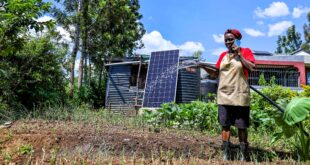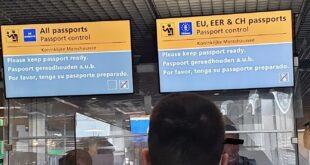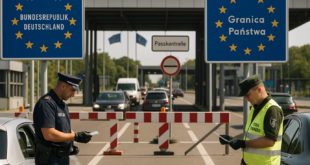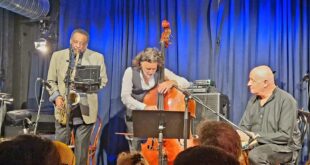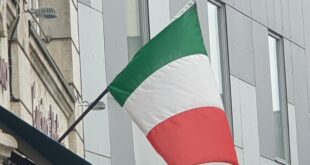Every year, the member states of the European Union celebrate Europe Day. This day commemorates the signing of Robert Schumann’s declaration of 9 May 1950, which is considered the birth certificate of what is now the European Union. Dr Pierrette Herzberger-Fofana, Member of the European Parliament, writes on how she commemorated the Day in Germany this year and why the European Union is the most successful peace project in human history
—-
In Bavaria, Germany, many events marked the Europe Day in almost every city. In Munich, in an atmosphere of fair, the authorities installed the Ferris wheel of democracy and in a secure gondola, at 60 meters above sea level, I had the pleasure of talking to citizens and answering their questions about my work in the European Parliament.
The next day in Lauf an der Pegnitz, 10 kilometers from Nuremberg, I was the guest of the high school, this school is part of the network “Ambassador School of the European Parliament” which aims to maintain relations of partnership and exchanges with the European Parliament.
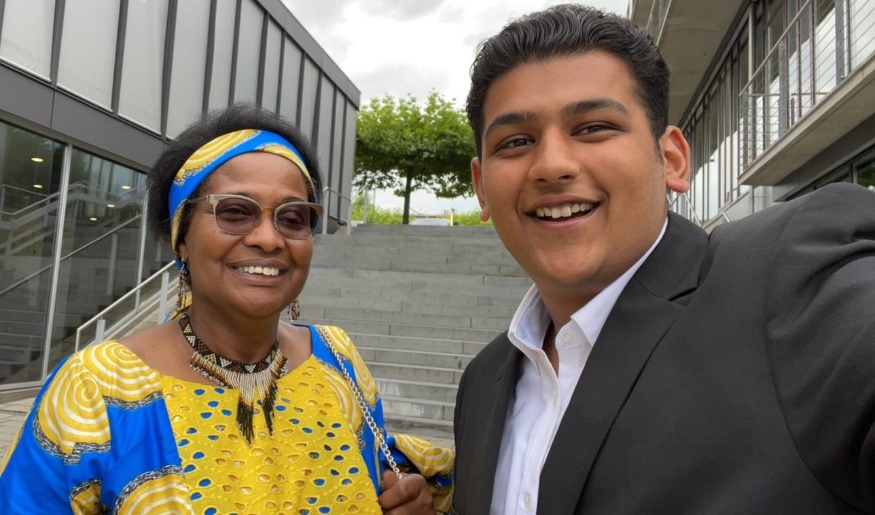
In the evening, in Erlangen, my constituency, I inaugurated the premiere of the film “Haram”. Haram Dar was my intern at my MP office in Brussels. This 16-year-old Pakistani student from Erlangen and spokesman for Bavarian pupils, was during the one month internship the youngest trainee in the European Parliament. This had a considerable impact on his personal character and political commitment, as he was invited to many television shows. During one of his television broadcasts, he made the Bavarian Minister of Education promise to offer a computer to any student who does not have one so that he could follow the courses online. It was in the middle of the COVID-19 crisis.
It’s a highlight for me. I am delighted to have participated in the awakening of a young teenager’s political consciousness and to see that his commitment goes beyond the limits of our city. He was even the host of the President of the Federal Republic of Germany, Mr Frank-Walter Steinmeier, at Bellevue Castle in Berlin. The film “Haram” has just won the prize of “European competition.”
The “Europe Day” marks the development of new forms of political cooperation in Europe, which should make a war between European nations unthinkable. Unfortunately, what we are currently experiencing would have been unimaginable not long ago. The war on the doorstep of the European Union has changed the situation.
The 2019 European Parliament elections showed how alive democracy is in Europe, even though it is currently facing great challenges such as the rise of extremism, racism, and the threat to peace within the European Union facing.
Committing together to European solidarity
A policy for Europe must be driven first and foremost by European citizens*. So we want to know what people expect from the European Union. Currently, a critical attitude is widespread. How the EU needs to change for self-confidence to increase again? How can we make the EU fairer, more democratic and more inclusive? We want to contribute to promoting a Europe of cohesion, peace and solidarity, particularly in the context of education. Alongside the action plan against racism voted in 2021, this new working instrument will work to give another vision of Europe.
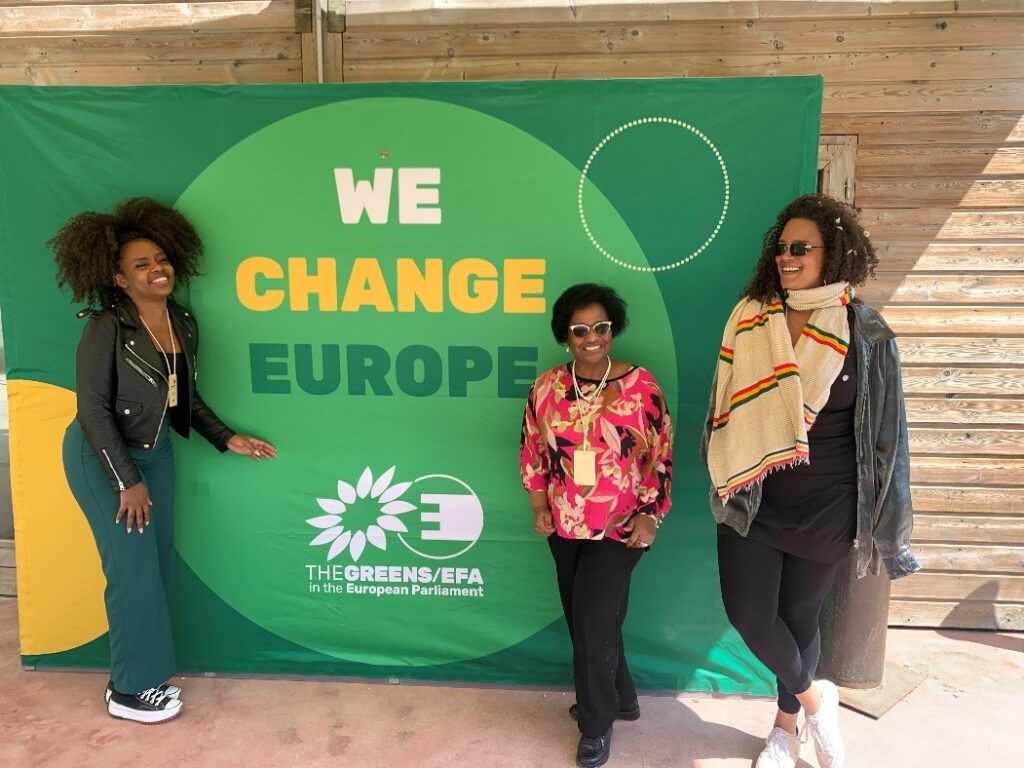
The European Action Plan for Democracy proposes a global approach based on the achievements of the European Union. It protects freedom of expression and aims to empower citizens to act with full knowledge of the facts. Citizens must be able to make electoral decisions in a public space where different opinions can be freely expressed.
The other objectives of the Action Plan are: To develop media freedom, combat disinformation, ensure the safety of journalists and adapt security measures to new digital realities. Universities and civil society should be able to play their part in promoting open debate, without being subject to malicious influence from national or foreign authorities.
The European Union, a peace project
In December 2012, the European Union was awarded the Nobel Peace Prize. The European Union wants to be the guarantor of peace on the continent, especially since when the project was conceived more than sixty years ago, it was with the aim of ensuring European cohesion, preserving peace and cooperation in Europe. Until February 2022, we took for granted living in peace, but what we are currently experiencing leaves us speechless, the war in Europe, on the borders of the countries of the European Union.
The European community has learned from the tragedies of the past, including the aftermath of the genocide of Jews, Sinti and Roma, the Nama and Hereros ethnic groups in Namibia, the massacres of African soldiers on the battlefields of Europe, all of which are a source of sensitivity for having become a “school of peace” based on the principle of reconciliation between former enemies.
Peace is therefore the very essence of European integration. In this sense, we will work to ensure that what we are currently experiencing is quickly part of the past. We therefore call on the Russian and Ukrainian belligerents to silence the guns and find the path of diplomacy, reconciliation and understanding, so that peace can return to the European continent.
Conclusion
The European Union is the most successful peace project in human history, rooted in universal values and principles of solidarity. It is our duty to pursue this project. The European Union must continue to protect human rights, guarantee respect for international law, national sovereignty and democracy.
—-
*The project “School of Ambassadors of the European Parliament” serves to build a European network between schools. It is aimed at schools dealing with European policy issues. Europe must get closer to pupils through more exchanges, personal contacts and partnerships with the European Parliament
 THE AFRICAN COURIER. Reporting Africa and its Diaspora! The African Courier is an international magazine published in Germany to report on Africa and the Diaspora African experience. The first issue of the bimonthly magazine appeared on the newsstands on 15 February 1998. The African Courier is a communication forum for European-African political, economic and cultural exchanges, and a voice for Africa in Europe.
THE AFRICAN COURIER. Reporting Africa and its Diaspora! The African Courier is an international magazine published in Germany to report on Africa and the Diaspora African experience. The first issue of the bimonthly magazine appeared on the newsstands on 15 February 1998. The African Courier is a communication forum for European-African political, economic and cultural exchanges, and a voice for Africa in Europe.




